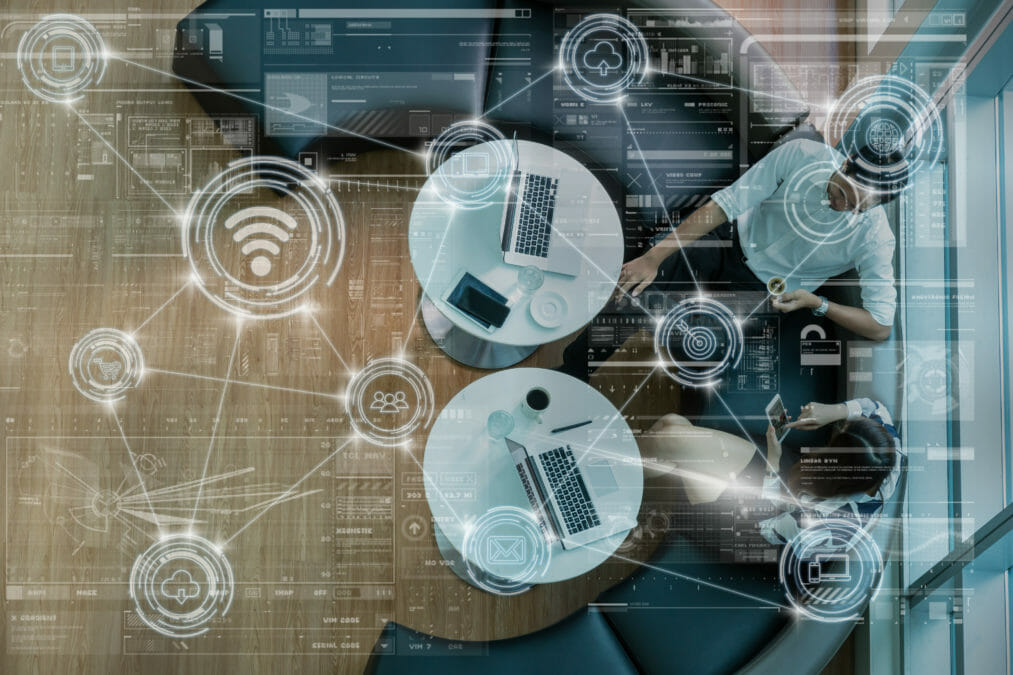Technology is no longer just a support tool — it’s the engine driving a massive transformation in how we work. In 2025, businesses and workers alike are navigating a digital-first world powered by AI, automation, and remote collaboration tools. The rapid evolution of technology is reshaping job roles, skills requirements, and even the definition of a “workplace.”
So, how exactly is technology shaping the future of work in 2025? Let’s explore the key trends and what they mean for employees, employers, and industries around the world.
🔧 1. AI & Automation Are Redefining Job Roles

Artificial Intelligence and automation have moved beyond manufacturing floors and into white-collar jobs. AI is now handling data analysis, customer service chatbots, scheduling, and even content creation.
Key Impacts:
- Routine tasks are automated, freeing up human workers for creative and strategic work.
- AI copilots (like GitHub Copilot or ChatGPT) are boosting productivity for coders, writers, and analysts.
- Jobs are evolving, not disappearing — roles like “AI trainer” and “prompt engineer” are emerging.
🌐 2. Remote and Hybrid Work Are Here to Stay

The pandemic jumpstarted remote work, but in 2025, it has matured. Hybrid models combining in-office and remote work are becoming the new norm.
Key Technologies:
- Virtual collaboration tools (Slack, Zoom, Notion) enable seamless team interaction.
- Cloud infrastructure allows secure access to work environments from anywhere.
- Virtual offices and metaverse experiments are starting to reimagine how teams connect socially.
Bonus:
Companies offering flexible work options see higher employee satisfaction and retention.
📚 3. Upskilling and Lifelong Learning Are Mandatory

With rapid tech adoption comes a demand for new skills. Companies are investing heavily in upskilling programs to future-proof their workforce.
Focus Areas:
- Digital literacy and data analysis
- AI/ML understanding for non-technical roles
- Soft skills like adaptability and communication in digital settings
Notable Platforms:
Coursera, Udemy, LinkedIn Learning are popular choices for self-paced learning.
🏭 4. Tech-Driven Workplaces Are Becoming the Standard

Workplaces in 2025 are tech-enhanced environments that prioritize efficiency and experience.
Examples:
- Smart offices with IoT sensors to optimize lighting, temperature, and occupancy.
- HR tech platforms that use AI for recruitment and employee wellness.
- Automated workflows in project management using tools like Monday.com or Asana.
🔄 5. Human-Centric Technology Is a Competitive Advantage

The future isn’t just about more tech — it’s about better tech for humans.
What’s Changing:
- AI ethics and transparency are key concerns.
- Mental health tools and work-life balance apps are in demand.
- Inclusive design ensures tech works for diverse teams, including remote, disabled, or neurodivergent workers.
🧠 Conclusion: Adapt or Get Left Behind
The future of work in 2025 is dynamic, digital, and demanding — but it’s also full of opportunity. Technology is not replacing people, it’s amplifying their potential. The most successful companies and professionals will be those who embrace change, upskill continuously, and use technology as a partner — not a threat.
✅ Call to Action:
Want to stay ahead in the digital workplace? Subscribe to our newsletter for the latest insights on tech, trends, and tools shaping the future of work.






This article is exactly what I needed! Your insights are incredibly helpful.
I’m happy to hear you find value in my content. Thanks for your continued support!
You’ve changed the way I think about this topic. I appreciate your unique perspective.